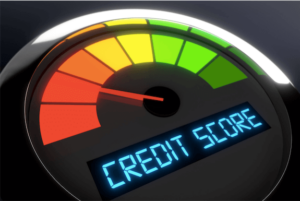A credit score is a numerical representation of your creditworthiness, and it plays a significant role in your financial life. A score of 550 falls within the lower range of credit scores, and while it’s not the lowest possible score, it does indicate some financial challenges.
Understanding the implications of a 550 credit score, the factors that contribute to it, and the steps to improve it is crucial for taking control of your financial future. In this comprehensive guide, we will explore what a 550 credit score means, its impact on your financial options, potential causes and effective strategies to raise your credit score.
What Is a 550 Credit Score?
A credit score typically ranges from 300 to 850, with higher scores indicating better creditworthiness. A score of 550 falls into the “poor” credit range, which suggests that you may encounter difficulties in securing favorable lending terms and may have limited access to credit. Lenders consider a 550 credit score as an indicator of higher risk, as individuals with scores in this range have a history of late payments, defaults or other credit-related challenges.
What Are The Implications of a 550 Credit Score?
Implications of a lower credit score include:
Limited Borrowing Options
With a credit score of 550, you may find it challenging to qualify for traditional loans, credit cards or mortgages. If you are approved for credit, it’s likely to come with higher interest rates and less favorable terms due to the perceived risk.
Higher Interest Rates
Lenders view lower credit scores as indicative of higher risk, so they may offer you credit with higher interest rates to offset that risk. This can lead to higher monthly payments and increased overall costs.
Difficulty Renting or Leasing
Landlords and property management companies often check credit scores when evaluating potential tenants. A lower credit score can affect your ability to rent or lease housing.
Impact on Employment Opportunities
Some employers check credit scores as part of the hiring process, particularly for positions that involve financial responsibilities. While a credit score alone doesn’t determine job qualifications, a poor score could impact your candidacy.
Limited Access to Credit
Even if you’re approved for credit, the credit limits offered may be lower, limiting your financial flexibility.
Higher Insurance Premiums
In some cases, insurance companies use credit scores to determine insurance premiums. A lower credit score could result in higher premiums for auto or home insurance.
What Are Causes of a 550 Credit Score?
Some common causes of a poor credit score include:
Missed or Late Payments
Payment history significantly impacts your credit score. A history of missed or late payments on credit accounts, loans and bills can lead to a lower score.
High Credit Card Balances
High credit card balances in relation to your credit limits can negatively impact your credit score. This is known as credit utilization.
Collections and Defaults:
Unpaid debts that have been sent to collections or charged off by lenders can significantly damage your credit score.
Bankruptcy or Foreclosure
Serious financial events like bankruptcy or foreclosure can have a lasting impact on your credit score and take several years to recover from.
Limited Credit History
If you have a limited credit history, it can impact your credit score. A shorter credit history may result in a lower score, as there’s less data for lenders to assess your creditworthiness.
How To Fix A Bad Credit Score
Some ways to improve a 550 credit score include to:
Check Your Credit Report
Obtain copies of your credit reports from all three major credit bureaus (Equifax, Experian, and TransUnion) and review them for errors or inaccuracies. Dispute any incorrect information that might be dragging down your score.
Make Timely Payments
Consistently making on-time payments is crucial for improving your credit score. Set up reminders or automatic payments to ensure that you do not miss due dates.
Reduce Credit Card Balances
Focus on paying down high credit card balances to improve your credit utilization ratio. Aim to keep your balances below 30% of your credit limits.
Negotiate with Creditors
If you have outstanding debts in collections, consider negotiating with creditors to settle the debt or set up a repayment plan. Some creditors may be willing to work with you to improve your financial situation.
Apply for Secured Credit
Secured credit cards require a security deposit, making them more accessible for individuals with lower credit scores. Using a secured credit card responsibly can help build positive credit history.
Diversify Your Credit Mix
If you have limited credit types, consider adding a different type of credit, such as an installment loan, to your credit history. A diverse credit mix can positively impact your credit score.
Avoid Opening New Accounts
While adding new credit can be beneficial over time, applying for too much credit within a short period can result in multiple hard inquiries and potentially lower your score further.
Seek Professional Help
If your credit situation is complex, consider seeking advice from a credit counselor or financial advisor. They can help you create a tailored plan to improve your credit over time.
Final Thoughts
A credit score of 550 indicates room for improvement, but it is not an irreversible situation. By understanding the implications of your credit score, identifying the factors that contributed to it and implementing responsible financial habits, you can gradually raise your credit score and improve your financial prospects.
Whether it’s making timely payments, reducing debt, or diversifying your credit mix, each positive step you take can bring you closer to achieving a healthier credit profile and greater financial opportunities. Remember that improving your credit score takes time and patience, but the effort you invest will ultimately lead to a more secure and stable financial future.




